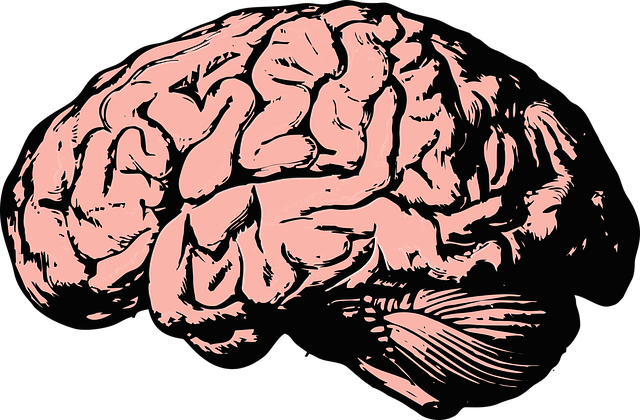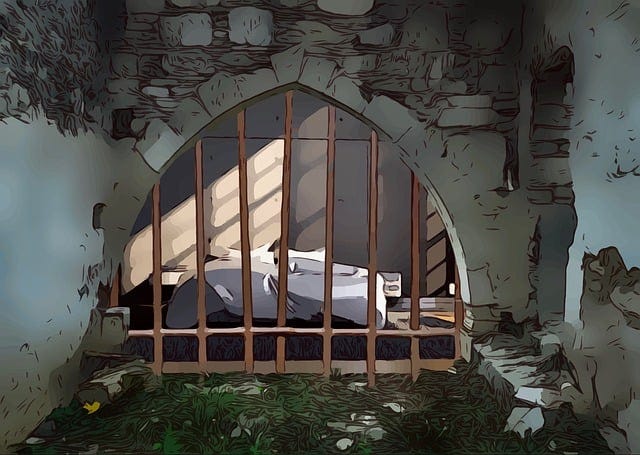Do We Have Free Will?
Or do genetic, environmental and the forces in the universe control our behavior?
Do you remember the old saying, "You made your bed; now sleep in it?" I am posing the question to everyone: Do we make our beds, or are they already made and without our choosing? Do we choose?
Scientific American
"Human beings do have the power to make conscious choices... But that agency and accompanying sense of personal responsibility are not supernatural. They happen in the brain, regardless of whether scientists observe them as clearly as they do a readiness potential."
Robert Sapolsky
"Humans have no free will," Sapolsky says that without a sense of personal agency, people may not want to do anything, and it may be dangerous to tell them they don't have free will. We are nothing more or less than the cumulative biological and environmental luck, over which we had no control, that has brought us to any moment.”
The Humanist Perspective in Psychology
Humanistic psychologists like Abraham Maslow and Carl Rogers are the group most likely to employ the concept of free will. Their main argument is that free will is necessary for self-actualization and change in one’s behavior.
The ongoing debate about free will is fascinating. It would be worth having an exchange of ideas in our chat. Please let me know if you are interested, and we can schedule a discussion. In addition, I want to encourage interested readers to please comment about anything of interest in the article.
The idea of free will is a philosophical concept that concerns people's question of whether or not we make decisions or if there are internal brain functions or external astrophysical forces that decide. It is a fundamental aspect of many philosophical, religious, and ethical theories. However, it is important to note that there are diverse perspectives on this concept, ranging from those who believe in a completely deterministic universe to those who advocate for a more nuanced understanding of free will. This diversity of thought enriches the ongoing debate and analysis.
The concept of free will centers around the idea that people have the power to make decisions that are genuinely their own. This means that individuals can control their actions and are responsible for them. Moral responsibility is a key aspect of this discussion, as it implies that individuals are not only capable of making choices but also accountable for the moral implications of those choices.
Determinism:
Robert Sapolsky, a renowned neuroscientist, holds a deterministic view of free will, suggesting that human behavior is the result of biological and environmental factors. He argues that the brain, being a physical entity, is subject to the laws of physics and chemistry, and therefore all behavior is predetermined. However, he also admits the complexity of the brain and the unpredictability it introduces. He believes that the perception of free will is a functional reality for human beings. Sapolsky's view challenges traditional notions of moral responsibility and punishment for criminal behavior.
Some people attempt to resolve this conflict by arguing that free will is not incompatible with determinism. They contend that exercising one's free will may involve acting in accordance with one's motivations, desires, and plans, even if these factors are themselves the result of prior causes. This view maintains that as long as individuals are not coerced or restrained externally, they are free.
Neil deGrasse Tyson, a renowned astrophysicist and science communicator, has shared his views on free will. His perspective is a valuable addition to the ongoing discussion because it draws on both scientific and philosophical discoveries. He often discusses how the concepts of physics intersect with humans' everyday lives, and the topic of free will is no exception.
Tyson has expressed skepticism about the traditional notion of free will. He suggests that if the universe is governed by the laws of physics, and if all actions are the result of particles interacting through these laws, then the concept of free will could be an illusion. From his perspective, every decision or action might be the outcome of the preceding states of the universe. This deterministic view implies that it might be possible, at least theoretically, to predict every future state. However, he also acknowledges the complexity of human consciousness and the brain, which introduces a level of unpredictability that might seem like free will.
However, he understands the complexity of human consciousness and the brain. He points out that the human brain is the most complex structure known in the universe, which introduces a level of unpredictability that might seem like free will. This unpredictability, coupled with our limited understanding of the brain and consciousness, means that the feeling of making free choices is a functional reality for human beings. While many factors may affect our choices, we mean by "functional reality" that the perception of making a choice is a significant aspect of our human experience.
Despite his leanings towards a deterministic framework, Tyson concedes the practical necessity of believing in free will. He suggests that societal constructs such as morality, law, and personal responsibility rely on the notion that individuals have the freedom to choose their actions. This belief is not just a philosophical abstraction but a practical necessity for the foundations of human interaction and law to be supported, leading to a profound impact on how society functions.
Crime:
The question of whether crimes should be punished if humans do not possess free will delves deeply into ethics, law, and philosophy. It challenges the foundational principles upon which many legal systems are built and stirs debate among scholars, philosophers, and the public alike. The debate includes Robert Sapolosky, who is among those who challenge the legal system because people cannot exercise free will.
If humans lack free will, every action is the result of prior events and conditions that dictate the choices people make. With determinism, individuals act as conduits for sequences of events they cannot control. This viewpoint suggests that notions of moral responsibility, upon which blame and punishment are often predicated, are misplaced. If actions are not freely chosen, it becomes problematic to justify punishment on moral grounds. This raises profound ethical questions about the nature of responsibility and the basis of our moral judgments.
However, even in a deterministic framework, proponents of punishment might argue that it still serves several utilitarian purposes. Punishment could be seen primarily as a tool for deterring undesirable behavior, rehabilitating offenders, and protecting society. From this perspective, whether or not an individual has control over their actions is less relevant than the effectiveness of punishment in achieving these ends.
Deterrence, one of the key justifications for punishment, relies on the assumption that potential offenders are rational agents who will avoid certain behaviors if the consequences are undesirable enough. However, if actions are determined, the efficacy of deterrence might be called into question, as it presupposes that individuals can choose to act otherwise. Despite this, one could argue that, at a broader societal level, establishing consequences for certain behaviors shapes the environment and thus influences the deterministic paths that people will follow.
Protective measures, including incarceration, serve to prevent individuals who have demonstrated harmful behaviors from causing further harm to society. Sequestering someone might be considered necessary if their actions are the result of factors that promote violent or antisocial behavior in order to protect the community's safety and stability.
The question of punishing crimes in a deterministic framework yields challenging answers. The justification for punishment shifts from moral culpability to more pragmatic considerations such as deterrence, rehabilitation, and societal protection. These goals suggest that even if individuals do not have free will, there could still be a place for punishment as a regulatory mechanism within society, structured to shape behaviors and outcomes in a deterministic universe.












Given everything that a person is, accumulated through time, when one faces a completely novel situation they are at the whim of the quantum entanglement throw of the dice.
An important discussion to have - if it matters to you.
To the question: How can we parse to the smallest impulse whether act wholly on objective reasoning. We are filled with impressions, voices of those who raised us, conditioning both deliberate and some destructive, even antithetical to logic.
Freedom is relinquishing this question and acting with morality (do no harm) and kindness (do unto others as you would have them do unto you).